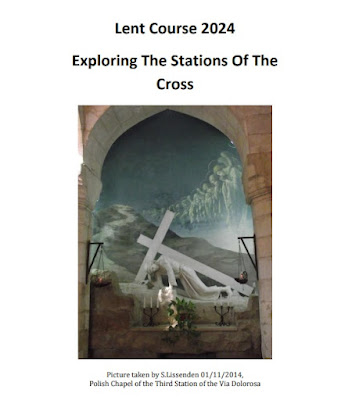HeartEdge is fundamentally about a recognition of the activity of the Holy Spirit beyond and outside the church, and about a church that flourishes when it seeks to catch up with what the Spirit is already doing in the world. There was a time when church meant a group that believed it could control access to God – access that only happened in its language on its terms. But God is bigger than that, and the church needs to be humbler than that. Kingdom churches anticipate the way things are with God forever – a culture of creativity, mercy, discovery and grace – and are grateful for the ways God renews the church through those it has despised, rejected, or ignored.
‘humbler church Bigger God’ is the new title for our ongoing online festival of theology, ideas and practice. We’ve developed this in response to our changing world. The church is changing too, and - as we improvise and experiment - we can learn and support each other. This is ‘humbler church Bigger God’’ - talks, workshops and discussion - hosted by HeartEdge. Created to equip, encourage and energise churches - from leaders to volunteers and enquirers - at the heart and on the edge.
The online programme includes:
Regular workshops: Church History (Fortnightly on Mondays), Sermon Preparation (Weekly on Tuesdays) and Community of Practitioners (Weekly on Wednesdays)
One-off workshops and series on topics relevant to renewal of the broad church including Contemplation as a Gift to the Church and Reconciling Mission: Being Better Neighbours.
February's humbler church Bigger God programme includes:
Church History course:A new course providing an introduction to and an overview of church history. If we are to see a humbler Church and a bigger God, we need to deal with the history of the Church to understand where we are now, and why. The course starts on Monday 24 January and runs twice a month at 7.45 pm on Mondays until 25 July (see below for dates and topics). It will be led by Rev Ruth Gouldbourne who has been a Baptist minister for more than 30 years, ministering in churches in Bedford, London and Cheadle Hulme, as well as being a tutor at Bristol Baptist College. An Associate Fellow of Spurgeon's College, she is also Senior Research Fellow of IBTSC Amsterdam, and a Research Fellow of Bristol Baptist College.
The schedule is as follows: Week 4 - Augustine towers over us all March 14; Week 5 - Christendom; love it or hate it, you need to deal with it March 28; Week 6 - A thousand years when nothing happened April 11; Week 7 - Middle ages; Light April 25; Week 8 - Middle Ages; Dark May 9; Week 9 - Middle Ages; Shadow May 23; Week 10 - Reform of all shapes and sizes June 6; Week 11 - Reason and romanticism June 27; Week 12 - Expansion and disintegration July 11; Week 13 - Reconfiguration – and nothing new under the sun. July 25.
Register for the Zoom link at
https://www.eventbrite.co.uk/e/church-history-course-tickets-280175220627.
Sermon Preparation with Sally Hitchiner and Sam Wells
Tuesdays, 16:30-17:30 GMT live-streamed at
https://www.facebook.com/theHeartEdge. Join us for our weekly discussion of the lectionary readings for the coming Sunday with Sam Wells and Sally Hitchiner.
Community of Practitioners workshop:
Wednesdays at 16:00 (GMT), Zoom meeting. Email
jonathan.evens@smitf.org to register. This is a space for practitioners, lay and ordained, to reflect on theology and practice. Each week, we alternate between 'Wonderings' and discussion of a work of theology. The book to be read is ‘Improvisation’ by Sam Wells. 'Wonderings' help us to reflect and pray on what has stood out for each of us in the last week. Newcomers are very welcome.
Shut In Shut Out Shut Up: Disability and Church: Intersectionality – Fridays, 4, 11, 18 March, 16:30 GMT. Register at
https://www.eventbrite.co.uk/e/shut-in-shut-out-shut-up-tickets-275653155007. Intersectionality is a way of describing how social categories (eg disability, race) combine to create overlapping systems of discrimination or disadvantage. In this 4th series of Shut In, Shut Out, Shut Up we explore the intersectional experience of disability and neurodiversity, gender, mental health, sexuality, race and poverty. What are the key issues in the context of faith? What are our calls to the church? Since 2012 the Living Edge conference has held space for disabled and neurodivergent people to gather, to resource each other and the church. These HeartEdge events share some of this experience, providing new space to ask challenging questions. Join us for more honest conversations.
Speakers: hosted by Fiona MacMillan with guests including: Molly Boot, Alex Clare-Young, Lamar Hardwick, Kate Harford, Ann Memmott, Rachel Noel, Alexis Padilla.
Topics
4 March - Disability & Neurodiversity
11 March - Gender
18 March - Mental Health
10 June - Sexuality
17 June - Race
24 June - Poverty
Access information
Image description: Church building behind iron gates; gates are shut and locked with a padlock and metal chain.
90 minutes on Zoom in meeting mode. Each session combines input from speakers with time in small groups and plenary discussion.
BSL and automatic captions are available.
Sessions will be recorded and posted on the HeartEdge YouTube channel.
Previous series of Shut In Shut Out Shut Up can be found at:
https://www.youtube.com/playlist?list=PLO43Y1gJDjYT5iOQlxc3vpRbo8EfFWU80 Speakers
Fiona MacMillan (she/her) is a disability advocate, practitioner, speaker and writer. She chairs the Disability Advisory Group at St Martin in the Fields and is a trustee of Inclusive Church. Fiona leads the planning team for the annual Living Edge disability conference, now in its 11th year.
https://www.plough.com/en/topics/justice/politics/human-rights/calling-from-the-edge Calling from the Edge (2017) & Something Worth Sharing (2019) (editor). Calls, ideas & practical resources for creating change -
https://www.inclusive-church.org/disability Fiona is on twitter @jpuddlegoose
Alex Clare-Young (they/them/Alex) is a pioneer minister in the United Reformed Church with a particular call towards working alongside those marginalised in church and society for social justice and equity for all. Alex’s lived experiences as a transmasculine non-binary person who is multiply neurodivergent and disabled inspires this call.
https://alexclareyoung.co.uk/ - Alex’s website
https://www.ionabooks.com/product/transgender-christian-human/ - Alex’s book
Alex is on twitter @alex_clareyoung and on Instagram @alex.clareyoung
Ann Memmott (she/they) is the author of the Church of England autism guidelines, and a member of the St Martin in the Fields/Inclusive Church disability conference planning team. Ann is autistic & disabled, and is a carer. Ann works nationally as an adviser on neurodivergent inclusion, working with a variety of organisations, and has been a regular contributor to Radio 4's Prayer for the Day.
https://d3hgrlq6yacptf.cloudfront.net/61f2fd86f0ee5/content/pages/documents/20211006-doc-mission-ministry-welcoming-autism-church-guidelines-v01.pdf Ann's autism blog
https://annsautism.blogspot.com/ Ann is on twitter @AnnMemmott
Rachel Noël (she/her), known locally as the Pink Vicar, is Priest in Charge of St Mark’s Church, Pennington, a HeartEdge church in the Diocese of Winchester. Creative, colourful, enthusiastic, autistic, ADHD, bipolar, and vulnerable to covid, she is passionate about diversity and inclusion. Rachel is a member of the Community of Hopeweavers.
Rachel's blog: thepinkvicar.com
Rachel is on twitter: @ThePinkVicar
Faith in the time of the ‘new normal’: Session one - Where are we now?: 3rd March 7:15pm. Register at
https://form.jotform.com/212773252401043. A series of Lenten conversations hosted by The Queen’s Foundation for Ecumenical Theological Education. This series aims to help congregations and house groups reflect on how Christians may understand the changes we’ve been through as a society, and the new ‘place’ we may be entering. It will draw on and introduce participants to resources from the tradition and offer them some tools for reflection to carry forward towards Easter. Sessions will take place on Thursday evenings during Lent and will be streamed live from the Queen's chapel to groups gathered online. Resources will be provided for the weeks where there are no hosted sessions. Thursday 3rd March: Where are we now? This session will explore where we are culturally in the wake of the pandemic, drawing on the Psalms to consider change, struggle and growth as an anchor for reflection.
Faith in the time of the ‘new normal’: Session two - Living in the tension: 17th March 7:15pm. Register at
https://form.jotform.com/212773252401043. A series of Lenten conversations hosted by The Queen’s Foundation for Ecumenical Theological Education. This series aims to help congregations and house groups reflect on how Christians may understand the changes we’ve been through as a society, and the new ‘place’ we may be entering. It will draw on and introduce participants to resources from the tradition and offer them some tools for reflection to carry forward towards Easter. Sessions will take place on Thursday evenings during Lent and will be streamed live from the Queen's chapel to groups gathered online. Resources will be provided for the weeks where there are no hosted sessions.
Music and Liturgy for Easter: Saturday 19 March, 11:00 – 12:00 GMT, Sacred Trinity Church, Chapel Street, Salford M3 5DW.
Theology Group: Sunday, 20 March, 19:00 – 20:00 BST, zoom -
https://www.eventbrite.co.uk/e/theology-group-tickets-248745844517. The St Martin-in-the-Fields and HeartEdge Theology Group provides a monthly opportunity to reflect theologically on issues of today and questions of forever with Sam Wells. Each month Sam responds to questions from a member of the congregation of St Martin-in-the-Fields who also chairs the session and encourages your comments and questions. In March the chair will be Jonathan Evens, who will be exploring with Sam the extent to which we can be co-creators with God.
How to Thrive Post-Covid: New Frameworks of Discovery - Thursday 24 March, 19:00 – 20:00, Zoom. Register at
https://www.eventbrite.co.uk/e/how-to-thrive-post-covid-new-frameworks-of-discovery-tickets-260228770257. The three steps of design thinking are discovery, ideas, and trying. The process can also be used on existing ideas to see if they’re still working. This workshop will focus on several frameworks that can be useful in discerning what to keep and what to let go of post-Covid. Rather than simply relying on a “gut feeling,” we can use clear frameworks to penetrate the surface of an issue to identify what really matters at its core. This course is taught by the Rev. Lorenzo Lebrija, the founding director of the TryTank Experimental Lab, a joint venture for innovation in the church from Virginia Theological Seminary and General Theological Seminary. He is also the author of the “How to Try” book which came out July 20, 2021 from Church Publishing.
TryTank meet and greet - Thursday 24 March, 20:00 – 21:00, Zoom. Register at
https://www.eventbrite.co.uk/e/trytank-meet-and-greet-tickets-262572029007. TryTank is the experimental lab for church innovation. Our work is to look ahead 10 years to where the church might be headed and use that foresight to inform our actions today. If you want to learn more about our work and perhaps partner on an experiment, join a conversation with the Rev. Lorenzo Lebrija, the director of TryTank.
Faith in the time of the ‘new normal’: Session three - Same boat or same storm?: 31st March 7:15pm. Register at
https://form.jotform.com/212773252401043. A series of Lenten conversations hosted by The Queen’s Foundation for Ecumenical Theological Education. This series aims to help congregations and house groups reflect on how Christians may understand the changes we’ve been through as a society, and the new ‘place’ we may be entering. It will draw on and introduce participants to resources from the tradition and offer them some tools for reflection to carry forward towards Easter. Sessions will take place on Thursday evenings during Lent and will be streamed live from the Queen's chapel to groups gathered online. Resources will be provided for the weeks where there are no hosted sessions.
-----------------------------------------------------------------------------------------------------------

























.jpg)

















